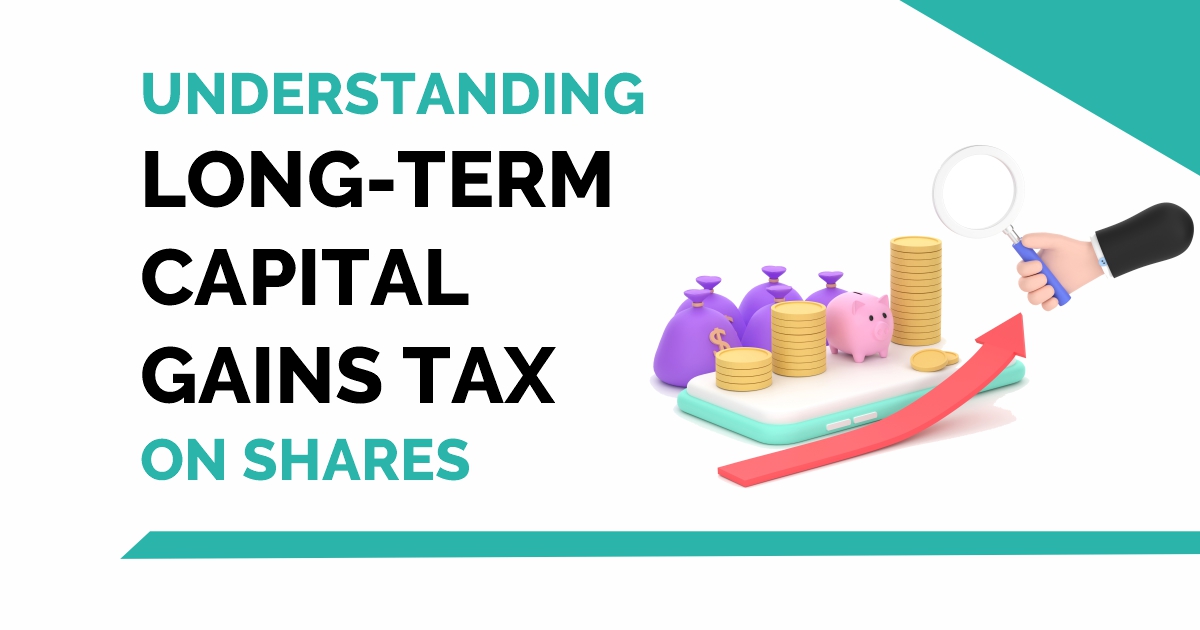Yes, it’s that time of the year where we need to part with the money that we earned from our business, jobs, or even from our stock market investment-the tax-paying time!
We all know that income from salary, business, and rental income is taxable. But what about the gains from the sale or purchase of shares? That is taxed too!
Many retired people and homemakers spend their time gainfully buying and selling shares, but they are unsure how this income is taxed.
So, in today’s blog, we will discuss how the capital gains that we receive from our investment is taxed:
Taxation on Stocks
The income or loss from the sale of equity shares comes under ‘Capital Gains.’ So, under the head ‘Capital Gains,’ income is classified into:
(i) Long-term capital gains.
(ii) Short-term capital gains.
This categorization is based on the holding period of the shares. It means the duration for which the investment is held, which starts from the date we bought till the date of sale.
The short-term capital gains are incurred when the equity shares listed on a stock exchange are sold within 12 months of purchase. So we need to pay 15% of our gain; it does not matter what tax slab we fall under, whether 10%, 20%, or 30%. A fixed-rate tax of 15% applies to short-term capital gains, irrespective of our tax slab!
Similarly, long term capital gains are incurred when the equity shares which are listed on a stock exchange are sold after 12 months of purchase. In this case, we are only taxed if our gains exceed Rs. 1 lakh. If our gains exceed more than Rs. 1 lakh then we will have to pay 10% of our gains.
Also, different rules apply to the sales of listed, unlisted shares, bonds, and mutual funds.
We should also note that any dividends from stocks or mutual funds are taxable. However, they are taxed at the same rate as your regular income.
One should also note that any dividends that we get from our investments like stocks or mutual funds are taxable. They are taxed at the same rate as our regular income.
Now let us come to how are mutual funds are taxed:
Taxation on Mutual Funds
The taxation of mutual funds is based on the holding period and the type of mutual fund. Capital gains that are realized on selling units of mutual funds can be categorized as follows:
1. Equity Funds
Equity funds are those types of mutual funds whose portfolio’s equity exposure exceeds more than 65%. The tax on equity funds is the same as the investment in stock as we discussed above. Short term capital gains are taxed at a fixed rate for a rate of 15% irrespective of the income tax bracket. Long term capital gains are taxed at a rate of 10% if the gains exceed more than Rs. 1 lakh.
2. Debt Funds
Debt funds are those types of mutual funds whose portfolio’s debt exposure is more than 65%. We get short-term capital gains when we redeem the debt fund units within a holding period of three years that are added to our taxable income and taxed at our income tax slab rate.
Long-term capital gains from debt funds investment are realised when we sell units of a debt fund after a holding period of three years. These capital gains are taxed at a flat fixed rate of 20% after indexation. Also, you are levied with applicable cess and surcharge on tax.
3. Hybrid Funds
The tax rate of capital gains on hybrid or balanced funds is based on the portfolio’s equity exposure. If the equity exposure is more than 65%, then the fund is taxed the same as an equity fund; if not, it is taxed the same as the debt funds.
Thus, we need to know the equity or debt exposure of the hybrid scheme in which we are investing for tax implications.
Securities Transaction Tax (STT)
Apart from the dividend and capital gain tax, there is another tax known as the Securities Transaction Tax (STT). An STT of 0.001% is levied by the government when you decide to buy or sell mutual fund units of either equity or hybrid fund. However, there is no STT on the sale of debt fund units.
You can also join our course on INSURANCE AND TAXATION MADE EASY
You can also watch our video:
Bottomline
One should note that the longer we hold on to our mutual fund units, the more tax-efficient this investment will become. The above discussion shows that the tax on long-term capital gains is comparatively lower than the tax on short-term gains. We hope you found this blog informative and will use the information to its maximum potential in the practical world. Also, show some love by sharing this blog with your family and friends and helping us in our mission of spreading financial literacy.
For stock related queries visit web.stockedge.com
Happy Investing!











